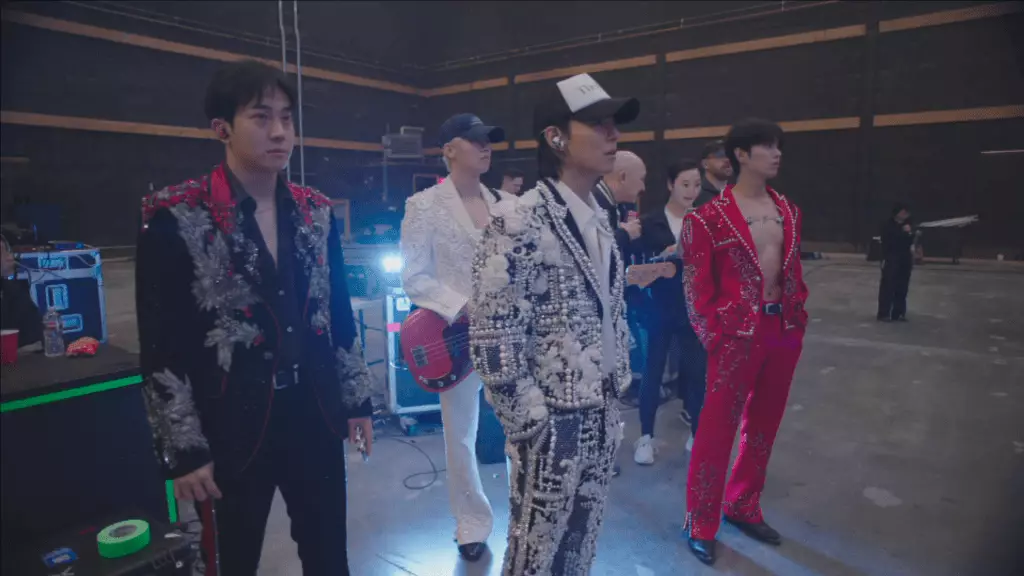In a world increasingly obsessed with the superficial glow of Korean pop culture, the buzz surrounding The Rose: Come Back to Me offers a stark reminder of how commercial entities manipulate narratives to uphold the allure of Korean entertainment. While the documentary’s promotion by CJ 4DPLEX hints at an inspiring story of perseverance, it’s critical to question whether this narrative glosses over the sacrifice, struggles, and sometimes exploitative practices that underpin this rapid ascent. The glamorous portrayal of the band’s “deep creative involvement” and “passion for music” risks romanticizing the journey, often at the expense of acknowledging the systemic pressures that pressure artists to conform within a global cultural machinery built for maximum profit.
Commercialization of Authenticity: A Double-Edged Sword
The film’s emphasis on the band’s “heartfelt interviews” and “immersive performances” serves as a perfect example of how authenticity is commodified. The band’s story—yet another coming-of-age narrative—might resonate on some emotional level, but it ultimately gets tangled in the web of marketing hype. The industry’s relentless love affair with Korean culture, exemplified by forceful marketing and strategic global partnerships, often pushes genuine artistic expression aside, replacing it with curated images designed to appeal to mass audiences. This is not a criticism of the band’s talent, but rather an observation of how the industry’s economic motives often distort the very authenticity they claim to celebrate.
The Myth of Cultural Soft Power as a Force for Good
CJ 4DPLEX’s investment into this documentary is part of a broader narrative that portrays Korean popular culture as a benign force for global unity and healing. However, this romanticized view oversimplifies the reality: behind every cultural export lie complex negotiations, power dynamics, and commercial interests that prioritize market expansion over artistic integrity. While the film aims to showcase the band’s emotional journey, it also inadvertently perpetuates the myth that Korean pop culture is solely a positive revolution without acknowledging its role as a carefully crafted export—an industry that, like any other, responds to the demands of capitalism.
Whose Story Is It Anyway?
The involvement of major production companies and international distributors raises questions about whose voice truly rings loud in this narrative. The band’s genuine feelings, fan experiences, and raw struggles risk being sanitized to fit a market-friendly mold. Moreover, by emphasizing how the film and its partners plan to leverage their global theater networks for maximum reach, it’s clear that the primary goal isn’t necessarily to tell an authentic story but to capitalize on the global hype surrounding Korean culture. This raises an uncomfortable truth: the real story is often less about the artist’s journey and more about commercial storytelling designed to sustain Korea’s image as a cultural powerhouse.
The Illusion of Cultural Progress Through Media
Finally, there’s a dangerous oversimplification in the notion that a documentary like this significantly contributes to cultural progress or understanding. While it showcases a band’s creative process, it also encapsulates the constraints and compromises artists face today. The narrative of healing through music, nationalism through cultural exports, and universal themes of love and heartbreak all serve to reinforce a comforting, market-driven ideology rather than question deeper systemic issues. The industry’s focus on spectacle and digital reach ultimately dilutes the potential for genuine cultural dialogue, replacing it with polished, market-tested stories that serve corporate interests over societal truth.
This is a cautionary reflection on the glossy veneer of Korean pop culture’s global success. It urges a more critical perspective on how stories are crafted, who they serve, and whether they truly reflect the complex realities of artists like The Rose. While their journey inspires many, it’s crucial to remain vigilant about the commercial forces shaping these narratives—forces that threaten to eclipse authenticity with manufactured perfection.


Leave a Reply